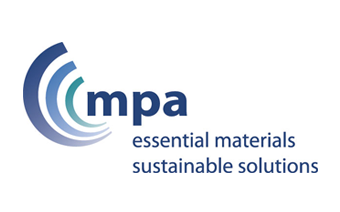4 Benefits Of Recycled Aggregates In Construction – Embracing Sustainability
January 15th, 2024
In a world where environmental awareness is everywhere, the construction industry is also taking big steps towards more sustainable practices. One area that has grown in popularity over recent years is the use of recycled aggregates in construction projects. Recycled aggregates are derived from construction and demolition waste, offering a range of benefits that go beyond just the environmental.
In this blog, we draw from our vast experience within the industry to explore four key advantages of incorporating recycled aggregates into construction practices.
 Benefits Of Recycled Aggregates In Environment Conservation
Benefits Of Recycled Aggregates In Environment Conservation
The foremost benefit of using recycled aggregates is the positive impact on the environment. Traditional construction practices, although still necessary, can often involve the extraction of natural resources, which in turn could lead to habitat destruction and soil erosion. Opting for recycled aggregates mitigates the demand for new materials and reduces the strain on natural resources. Additionally, the process of manufacturing recycled aggregates generates significantly less carbon emissions compared to the production of conventional aggregates, contributing to a lower carbon footprint for construction projects.
Our recycled aggregates are typically sourced from concrete, asphalt, and other construction debris that would otherwise end up in landfills. By diverting these materials from disposal sites, we decrease the volume of waste and minimise the environmental impact associated with landfilling. As a result, incorporating recycled aggregates in construction projects is crucial when nurturing a circular economy (something we support with our in-house practices) and promotes the responsible use of resources, reducing the burden on our ecosystems.
Recycled Aggregates & Cost-Efficiency
Beyond the environmental advantages, the use of recycled aggregates can offer economic benefits for construction projects. One significant cost advantage is the reduced need for raw materials. Since recycled aggregates are derived from existing construction materials, the demand for extracting, processing, and transporting new resources from quarries is substantially diminished. This leads to lower procurement costs for construction companies, making sustainable practices not only environmentally friendly but also economically viable.
Moreover, recycled aggregates contribute to the overall efficiency of construction projects by decreasing the amount of waste that needs to be transported to landfills. This reduction in waste disposal costs, coupled with potential government incentives for sustainable construction practices, further enhances the financial attractiveness of incorporating recycled aggregates into building projects. As the construction industry continues to prioritise sustainability, the long-term economic benefits of using recycled aggregates become increasingly evident.
 Structural Performance and Durability
Structural Performance and Durability
One common misconception about recycled aggregates is that they compromise the structural integrity and durability of construction projects. However, research and real-world applications have shown that recycled aggregates can meet and, in some cases, exceed the performance characteristics of traditional aggregates.
Modern processing techniques ensure that recycled aggregates are carefully sorted, cleaned, and graded to meet the required specifications for various construction applications. At SRC we carry out this process in-house through one of our state-of-the-art processing plants and ensure it has been thoroughly tested to guarantee the highest quality standards.
Recycled aggregates are commonly used in road construction, concrete production, and other infrastructure projects. Their versatility extends to both non-structural and structural applications, due to their ability to provide durable and reliable performance. When combined with proper quality control measures and engineering expertise, recycled aggregates can contribute to the creation of sturdy, long-lasting structures.
Community Engagement and Corporate Responsibility
Incorporating recycled aggregates into construction projects goes beyond the physical nature of the structures; it reflects a commitment to corporate social responsibility and community engagement. As society becomes more conscious of environmental issues, stakeholders are increasingly valuing companies that prioritise sustainable practices. Construction firms that adopt recycled aggregates not only contribute to global environmental goals but also enhance their reputation as responsible organisations in the eyes of clients, governing bodies, and the public.
Furthermore, using recycled aggregates in construction projects aligns with local and global sustainability initiatives. This alignment can open doors to partnerships, collaborations, and funding opportunities that support environmentally friendly practices. By embracing recycled aggregates, construction companies position themselves as leaders in sustainable development, fostering a good reputation within communities and contributing to a positive societal impact.
Choose SRC For Recycled Aggregates
Now you understand the benefits of recycled aggregates, why not read why you should choose SRC Group for recycled aggregates.
For more information on any of our services call our customer liaison team on 0208 594 0169, email us at enquiries@srcgroup.co.uk or use our contact form.
< Back to news







